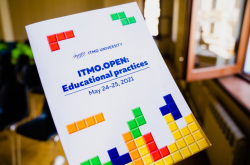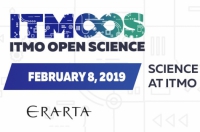Everyone's heard of China's rapid development in recent years. The country has already developed great transport infrastructure that can rival Germany's, and recultivated most of the territories that are supervised by its government. If China was once known as a country that masterfully copied other countries' products, now the Chinese industry is making a huge step forward, leaving many developed countries behind.
The collaboration between Yantai city Technopark and ITMO University started back in 2015 and has been developing ever since; in spring of 2017, representatives of the Chinese technopark came to ITMO to sign a bilateral agreement.

Gennady Lukianov
"Despite the event being called a conference, its organizers chose a format that was quite different from what you'd expect. Among the speakers were not scientists or industry specialists, but representatives of the Party’s leadership - Regional Committee secretaries who supervised the event. A lot of attention was given to the One Belt, One Road initiative. Despite the strict control of the CCP (Communist Party of China), business is rapidly developing in China. At the conference, the Chinese introduced their industry to specialists from different countries - Russia, CIS countries, India, Germany and other," shares Gennady Lukianov.
For the One Belt, One Road initiative, the Chinese are set on using the scientific potential and resources of their international partners. They are also quite interested in inviting different specialists from the USA, Russia, Georgia, Ukraine, Belarus, and Germany: amongst those will be doctors, biologists, specialists in the field of semiconductor technologies, solid-state physics, sensor scientists and many others.
 One Belt, One Road conference
One Belt, One Road conference
The participants' selection process was also quite original. The organizers developed application forms and sent them to potential candidates; each had the right to fill them in their native language. After the organizers got the forms back, they translated them into Chinese and sent to their companies, so the representatives of the industry could decide for themselves which speakers they want to invite.
"Industry in China is developing at a very fast pace; their official development rates are better than those of any other country. Still, the Chinese face a problem: their industry got far ahead of its scientific resources that comprise the industry's foundation. China's current specialists can't react to many of the current challenges; while they were still copying and "cloning" others' ideas not so long ago, now they are investing lots of money in science. Still, China has yet to develop its own scholarly traditions in the conventional sense," believes the professor.
According to Mr. Lukianov, many branches of the industry were represented at the conference - from electronics to heavy industry. Each visiting scholar had a showcase with his name and the name of the field he's working in; representatives of Chinese industry approached them and asked relevant questions.

"I was asked about the problem of embedding a flowmeter into an already existing heat-exchange unit - there was no place for it in its design. A flowmeter is essential for such a system, as without one there won't be enough information for managing the unit. Were they to provide for additional details in their initial design, that would be possible; now, it poses a serious problem. Also, they were interested in the correct way to organize a gas leak alarm. Amongst the questions to other specialists were ones that had to do with things like creating monoatomic sapphire layers for iPhone manufacturing. As of now, they largely focus on the issues of production, and their level of understanding fundamental processes is lower than ours," comments the professor.
Not only did the Chinese participants learn from the experience of others, but also shared their own practices. During the course of the conference, the visiting scholars had the opportunity to partake in different meetings and tours; for convenience's sake, each was accompanied by a Chinese student who studies English. Thus, the scientists visited the Big Data Center in Guiyang and had tours around the campuses of Liaocheng and Guiyang universities.
*The One Belt, One Road concept is an international initiative aimed at creating new and improved trade and transport routes as well as economic corridors linking more than 60 countries of Central Asia, Europe, and Africa, that will contribute to the development of their trade relations with China. The Chinese initiative on creating a global transport and investment infrastructure unites two projects: the Silk Road Economic Belt and the Maritime Silk Road.





